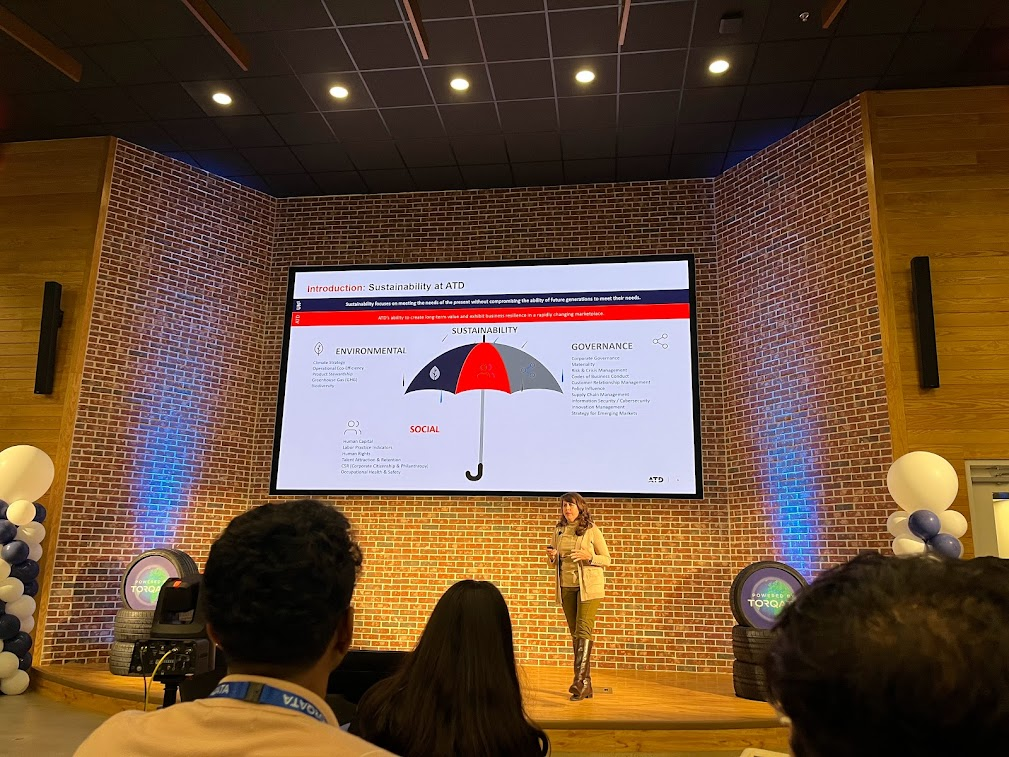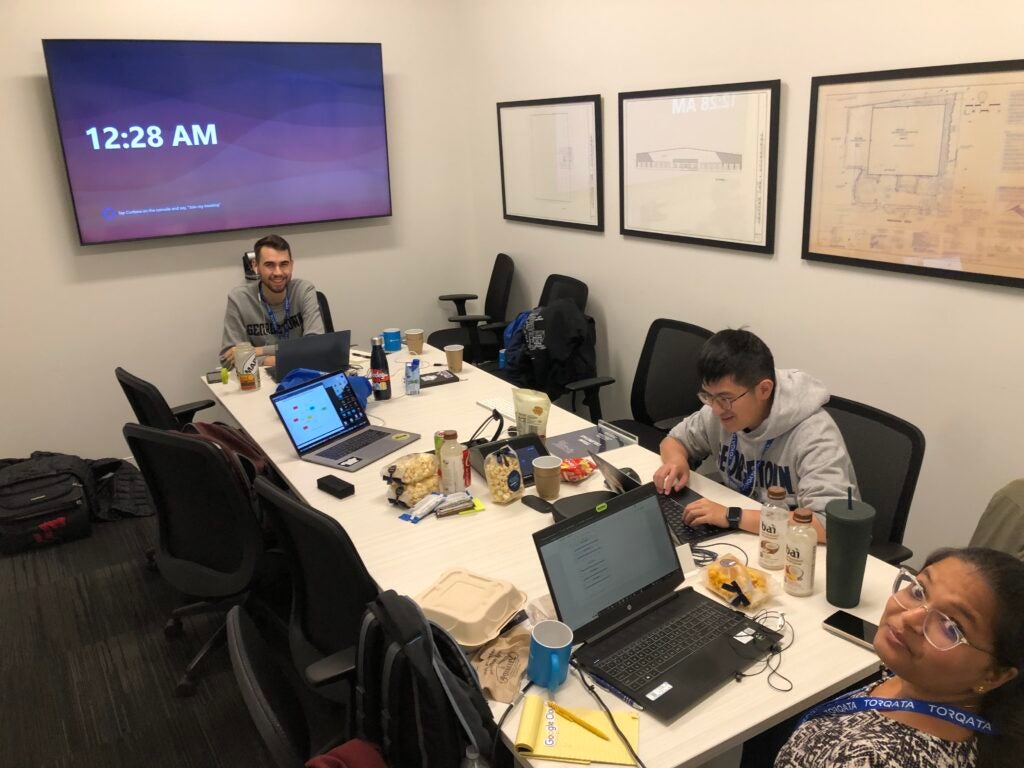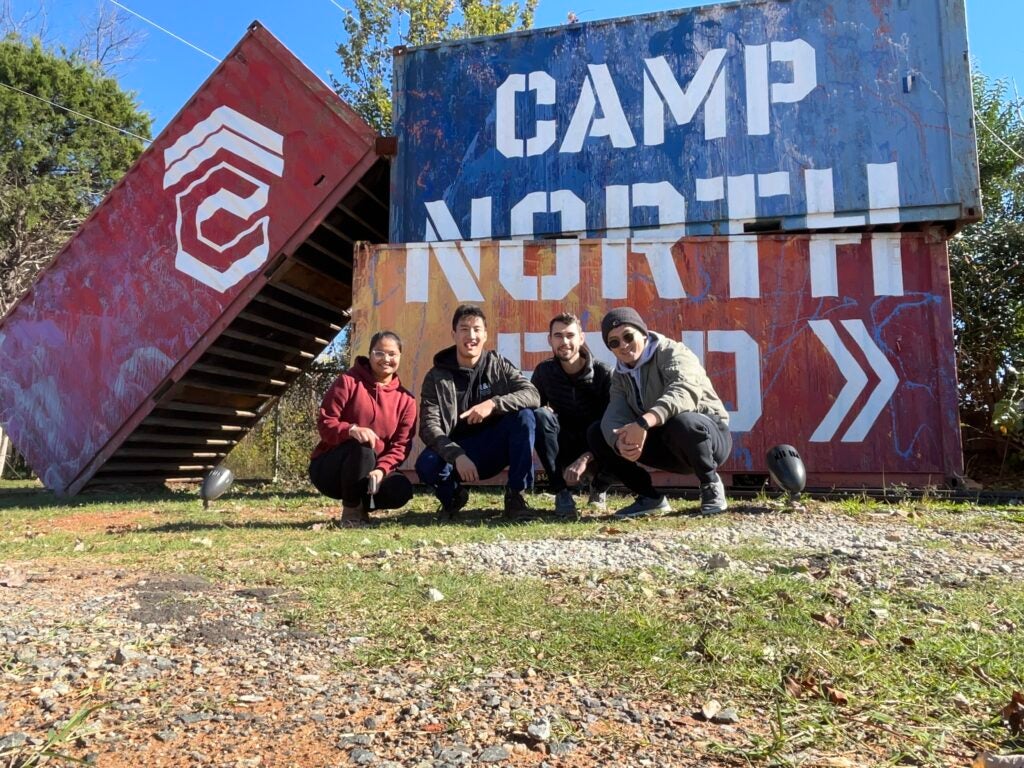Student Perspective: Torqata Reinvent the Wheel Hackathon
by Daniel Cisek, Brian Li, and Rui Qiu
Why Hackathons Are an Important Experience For Students
Participating in a Hackathon is an important milestone in any data scientist’s journey. Hackathons provide an exciting opportunity to take the skills and techniques you’ve learned and apply them to solving a challenging business problem for a company. Usually, these events run for 24 hours, bringing together data science teams from across the country to compete to develop the most effective model or solution. Our team, composed of Rui Qiu (GU), Daniel Cisek (GU), Brian Li (GU), and Keerthana Yelchuri (University of South Florida), was chosen to take part in Torqata’s Reinvent The Wheel Hackathon. This hackathon focused on the automotive aftermarket industry and optimizing aspects of its supply chain. Given the sheer quantity of car tires used in the United States, even slightly improving how they are stored and distributed has the potential to save distributors huge amounts of money and result in a more environmentally-friendly, sustainable practice.
Hackathons are notable for many reasons, but one reason that consistently stands out is the opportunity to test your skills against a real-world problem. Hackathons are usually focused on solving a real business problem for an organization. As students, we’re used to seeing the same data sets over and over – Iris, Titanic, Boston Housing, etc. Hackathons allow you to use real-world data from the company, exposing you to the challenges often faced with using actual data and giving you invaluable experience to draw on when applying for jobs. For Reinvent the Wheel, we had the opportunity to access specific kinds of data that we’d otherwise never have gotten access to. Luckily, our program (Georgetown DSAN) has done a good job of exposing us to all sorts of data, so we didn’t feel nervous working with a dataset we’ve never seen before.

2022 Torqata Hackathon Introduction Presentation
The Adventure Begins
The journey started at Dulles International Airport, as we all readied ourselves for the competition, swapping stories, ideas, and hopes for what the next few days might hold. One
of the hardest parts of a hackathon is the uncertainty – although sometimes you’ll be given a heads-up about what problem you’ll be asked to tackle, you rarely get specifics. In a sense, this does level the playing field, as teams show up with the same chance to excel in the competition.
After a quick flight down to Charlotte, North Carolina, we were greeted with an overview of the competition, which provided background on the company itself, its mission, and how data science supports its day-to-day operations. The excitement throughout the room was palpable as teams from across the United States got ready to jump into this challenge.
At 4 PM, the gong struck, and the 24 hours were underway. We jumped into the challenge with open arms and tackled our first challenge, which broadly focused on forecasting. We explored several potential model options to solve this problem, eventually settling on a solution that put us (temporarily) on the leaderboard.
One of the best things about this Hackathon was its ability to provide a larger and more encompassing experience around the hackathon as a whole. Between coding sessions, we made sure to take breaks and get some of the seemingly endless complimentary snacks and drinks that were provided. These breaks also gave us time to meet sponsors, get free giveaways, and take part in activities and events put on during the night. These supplemental experiences illustrated Torqata’s dedication to not only having students tackle these problems, but creating an environment where we all could learn, grow, and network.

Daniel, Rui, and Keerthana burn the midnight oil.
The second problem proved much more difficult for our team, as it involved solving a complex optimization problem. Although all of us were excited to solve this problem after fielding a solution for the first problem, it was challenging to stay focused and sharp as the clock hit 3 am!
How to Navigate a Successful Hackathon
One of the key things to remember is to prioritize your tasks. Identify the most important tasks that need to be completed, and focus on those first. In our case Task One contributed more to the final grading, thus we decided to tackle it first.
It’s also important to take regular breaks. Hackathons can be intense, and it’s easy to burn out if you don’t take care of yourself. Make sure to take a few minutes every hour or so to stretch, grab a drink, or just take a break from the screen. This will help you stay focused and energized throughout the hackathon.
You need to also be sure to communicate with your team. Discuss how you will divide up the tasks and make sure everyone is on the same page. This will prevent duplication of effort and ensure that you are all working towards the same goal.

Keerthana, Brian, Daniel, and Rui enjoy Camp North End.
Lastly, Hackathons are about having fun, learning new techniques, and exploring new areas. Optimizing our time like the data scientists we are, and still sleep-deprived, we decided to explore Charlotte and see what the city has to offer and stumbled upon Camp North End, an outdoor arts district containing many studios and murals which served as the perfect ending to an already ideal weekend!
We’d like to thank Torqata and American Tire Distributors(ATD) for hosting us and for the opportunity to compete. We would also like to thank Georgetown DSAN for teaching us the skills necessary to take part in this event. A big shout out to Dr. Padalkar for his mentorship and advice while we prepared for the event, as his perspective on supply chain optimization was invaluable to us.